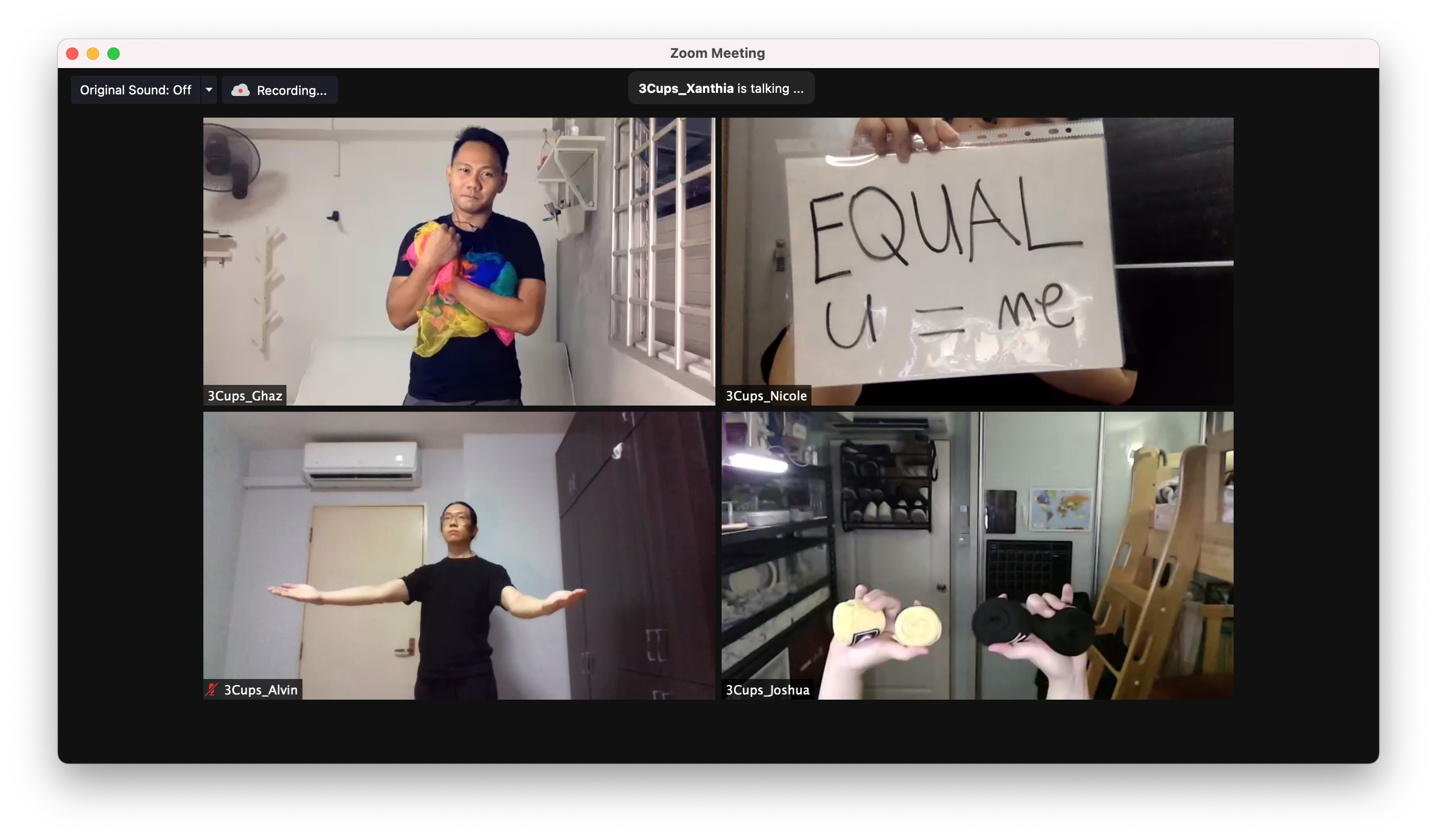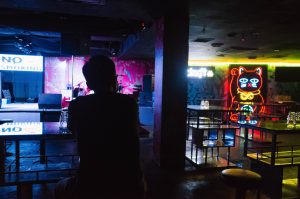Top Image: 3 Cups of Kopi
If there is one thing that has really irked me during this pandemic, it’s the assumption that our theatre industry has met its demise. Things like live performances and exhibitions may not be feasible in these trying times, but a closer and more nuanced investigation into the heart of our theatre scene reveals that it is anything but going extinct.
Despite the struggles and challenges posed by the pandemic, local theatre has been taking these obstacles in good stride. Companies have continued experimenting with ways to adapt their works, and upgrade their skills to push out pieces that will not only tide through this difficult period, but will also remain relevant post-pandemic.
Case in point: 3 Cups of Kopi, a group that specialises in Playback Theatre—an applied form of theatre where participants are invited to share their personal stories and have trained actors play back the different emotions, thoughts, and feelings associated with the story—has found innovative ways to incorporate their art form into the online medium of Zoom.
In essence, an online version of Playback Theatre generally operates in the following manner: after inviting a participant to tell their story, the facilitator summarises it and signals for the actors to begin performing. Using common household items such as pots and pans, small whiteboard markers, and even zoom filters, the emotions and thoughts that accompany the participant’s story are represented by the actors and “played back” to the audience. The entire experience is quite surreal indeed, bringing to life an almost invisible, untold layer of the story that imbues it with new meaning and empathetic connection.
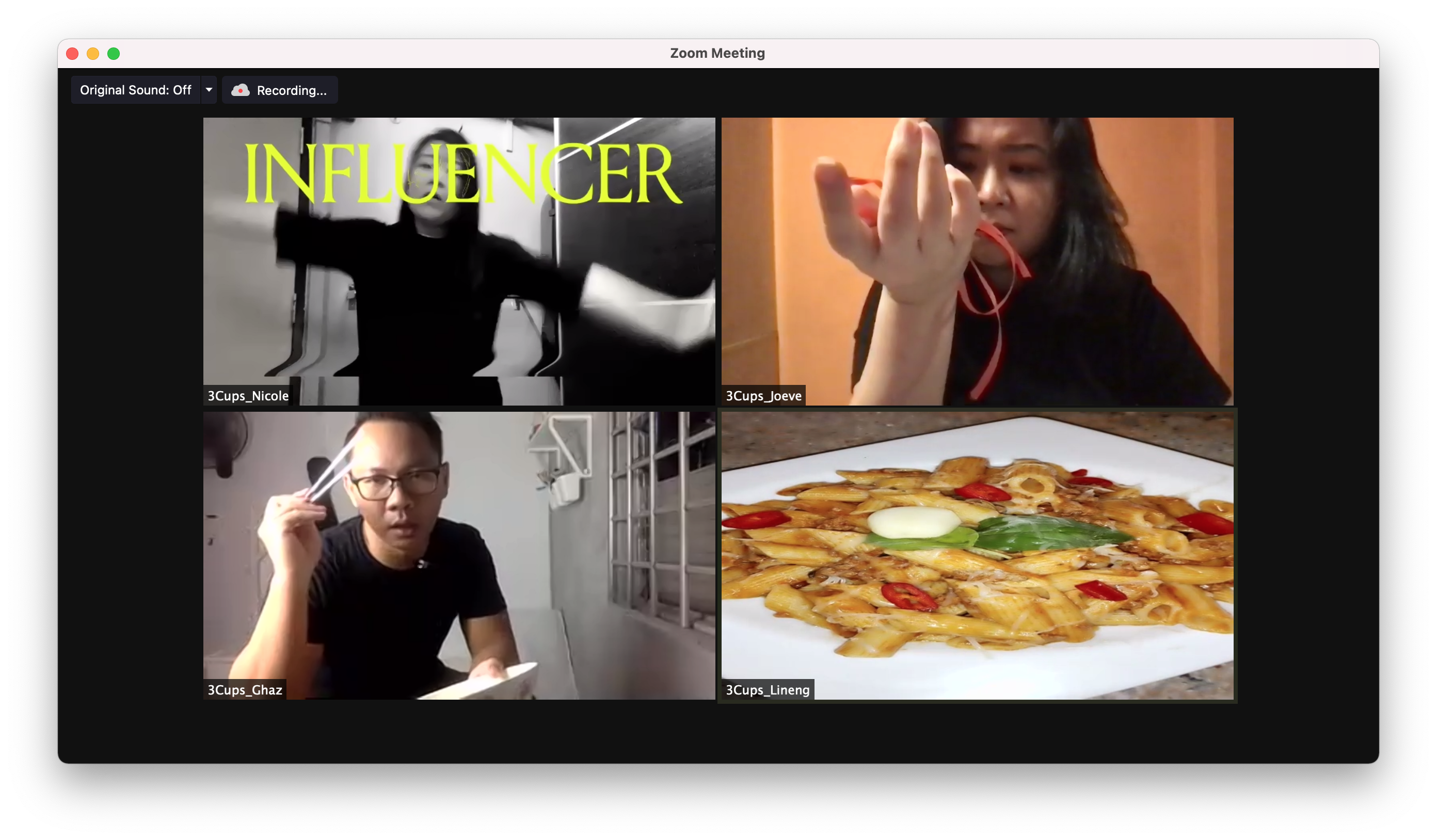
While this is certainly somewhat different from how Playback Theatre would function in person, it by no means points towards the inferiority of online theatre. To start, it helps to recognise that online theatre is more than just a substitute for live performances. It is a completely different medium that has its own unique ability to bring people together and touch the lives of many.
Certainly, having a physical process, such as purchasing a ticket from a booth, entering into a space guided by an usher, perusing an itinerary, and even exiting the space after the performance is over may be valuable to the overall experience of theatre. However, while this is understandably important in establishing a sense of ritual and ambience for the performance, who’s to say that these acts of ritual and process cannot take place online?
Offstage 3.0, a production by Emergency Stairs, incorporated this very line of inquiry into its performance. Using multimedia tools such as laptops, phones, and live-streamed videography, the performance, which was performed online in December 2020, sought to challenge the need for a physical presence in arranging a theatrical production. This was just one of the many innovative ways that theatre companies have adopted a fairly optimistic perspective when dealing with the pandemic.
They’ve seen it as a catalyst for innovative change rather than a circumstantial hindrance.
Online and digital theatre has become increasingly common as a result of the pandemic. As technology continues to upgrade itself over time and change the way we live and interact with one another, so does theatre reflect this dynamism in its dramaturgy and style. With the spotlight being drawn towards avant-garde theatre companies such as New York-based experimental theatre company The Wooster Group, which specialises in multimedial performance and digitalisation, the rise in technology as a whole as pivoted our focus towards what is particularly relevant to us – which oftentimes takes the form of technology as a whole.
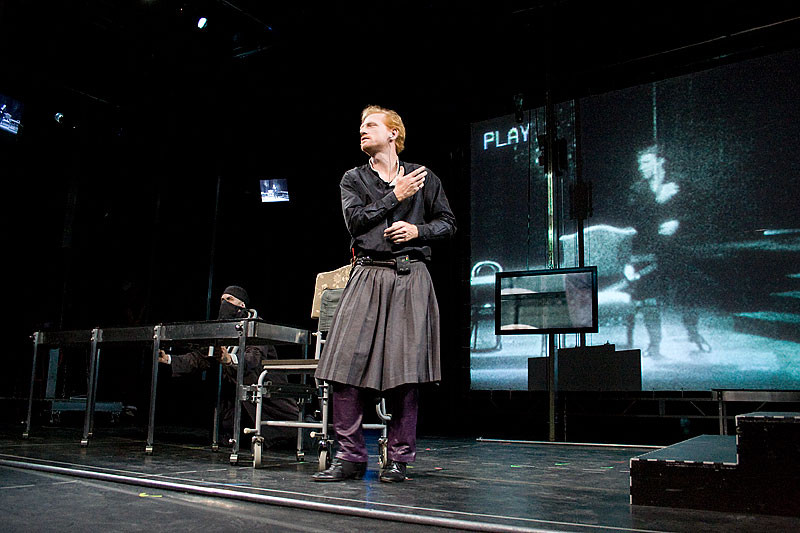
In essence, the times have been, and are always changing. What the pandemic has done effectively to catalyse this move forward for all of us. While this transit may have been unexpectedly sudden, it is nothing completely unforeseen. Theatre groups in the past have been dabbling with the incorporation of new forms of technology into their performances, and will continue doing so even after the pandemic blows over.
As our local theatre scene embarks on this journey of reformation and evolution, the last thing they need right now is for audiences to shun their digital works, and mistakenly trivialising them as being inferior copies of the real.
Here are three reasons why we should celebrate this rise of online theatre.
1. Accessibility
Holding a performance in an online format has the significant benefit of allowing more and more people to access these performances from the comfort of their own home. This is especially important when we consider things such as individuals with physical disabilities, together with well, just the thought of having to physically travel down to watch something.
Clicking on a Zoom link and participating in an online performance from one’s own home makes online theatre and performance far more accessible than it otherwise would have been pre-covid.
The migration of theatre towards the online form also allows for participants to attend workshops and performances from all over the world, as long as their time zones match, of course. Participants not only enjoy a greater diversity of online shows to choose from, they also become part of a global community of audience members when participating in online performances. In effect, a global tapestry of theatre is sewn together as a result of this unprecedented level of accessibility.
You can’t help but be changed by so many stories that are being told and shared at the same time, because now [theatre] is everywhere
By allowing for a greater diversity of audienceship as well as performance groups, theatre productions experience an unprecedented range of views, expectations, and awareness as a whole.
To learn more about the community’s perspective of diversity in moving towards the online format, I spoke to Michael Cheng, the artistic director of Tapestry Playback Theatre and Adjunct Lecturer at Singapore Polytechnic. He explains that this diversity is necessary in communicating an even greater sense of empathy and connection with groups of people we may not otherwise have the opportunity to engage with on an ordinary basis:
“I would have Palestenian friends, Arab friends, so on and so forth,” he says.
“And you think about how politics has impacted lives, and how many different perspectives there are. Yet I can choose to say that every one of those views are valid because they are the realities for each of these individuals.”
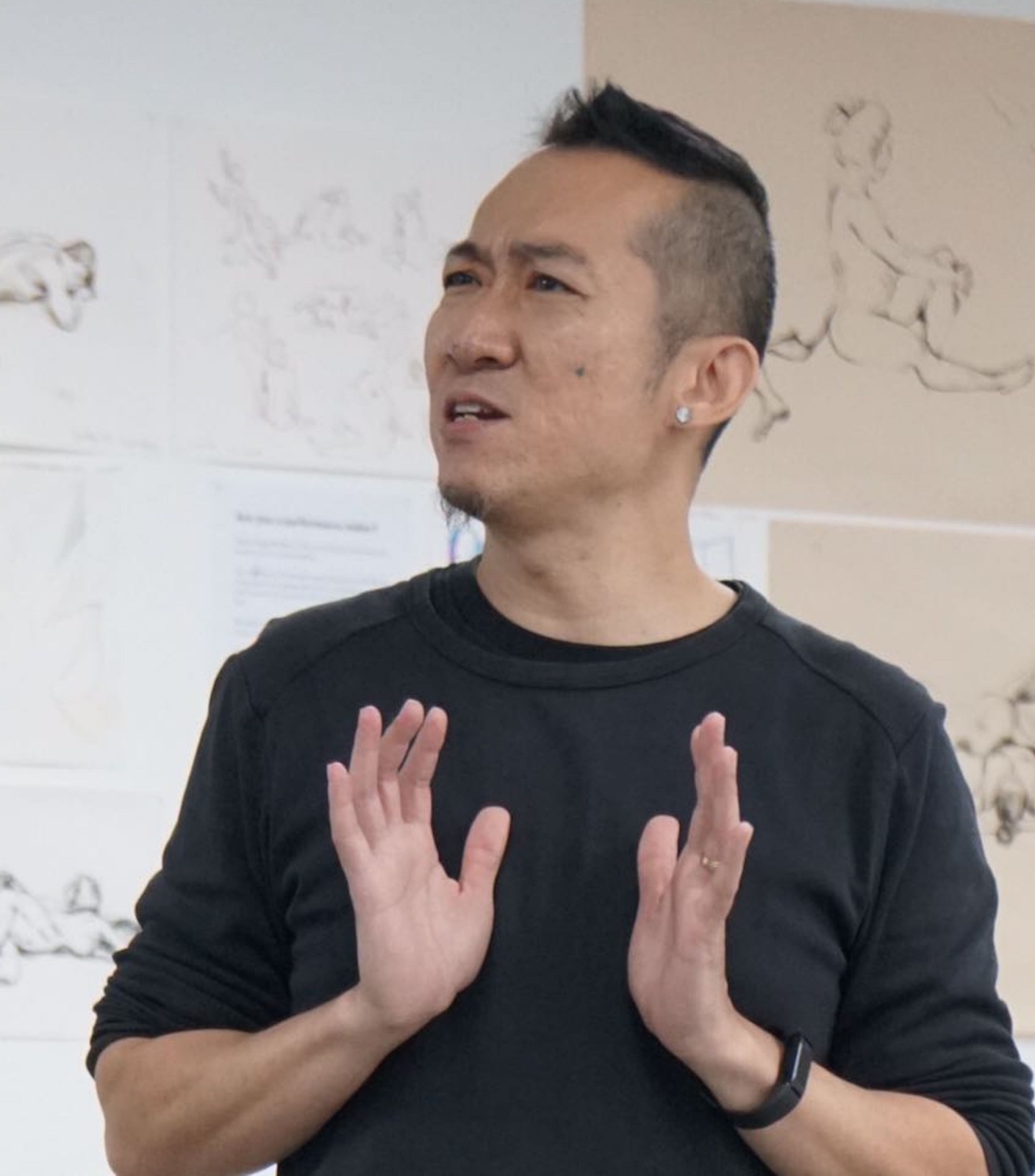
“It just makes you appreciate how complicated situations, moments, and politics can be. But at the same time it impacts individuals, and that’s where I think a lot of us need to be more aware that things are rarely so black and white. There are always more sides to the story.”
For most of us, theatre is about bringing people together. It’s about sharing stories, experiences, and perspectives with one another. It’s about community building. If we accept that all of these are important to theatre, then surely it is through this transition to the online form that we better achieve this greater diversity where perspectives and opinions all across the world are shared and embraced.
2. Affordability
This is the part that some of us may be the most concerned with. Yes, shows and performances have mostly become more affordable and cheaper with the migration towards online platforms. Performance groups and troupes are able to save on things such as securing physical venues for rehearsals and the actual performances, as well as the additional logistical support that comes with hosting a live performance.
Gone are the days where expensive lighting and sound equipment had to be rented or even bought to facilitate performances. This inevitably means that ticket prices are considerably cheaper than before, which only serves to make attending an online performance an affordable and meaningful way to spend your weekend nights.
More importantly, being able to save on venues and physical logistics also means that performance groups are able to invest more time and resources in continually being innovative and finding new and creative ways to execute their performances. Expenditure on things like skills upgrading workshops for performers to accommodate the new online format for instance, are now more accessible to even smaller theatre companies.
By investing in IT skills upgrading and proficiency, theatre companies are not only able to find more creative ways to express their art over the online form, but are also able to future-proof their performances for the long run. Online theatre will not be going away even after the pandemic tides over, and these skills will ensure that their art remains relevant and up to date for the long haul.
3. Interactivity and Intimacy
While arguably the most controversial aspect of online theatre, with many criticising the form for its lack of personal connection and feeling, perhaps a more nuanced discussion on this needs to be had to explore this further.
In the same way that performance groups rely upon a certain ritual (be it curtain calls, physical gestures, or even setting a particular ambience) in order to create a sense of connection with their audience members, online theatre brings with it its own set of processes and facilitation techniques to re-create this sense of ritual, and bring the heart of the performance to its audiences.
Some of us are holding onto the perspective that online theatre is a temporary substitute. But really, a lot of us are also enjoying the online platform because there’s so many opportunities now.
3 Cups of Kopi for instance, in holding their online playback performances, still preserve the ritualistic aspects of ice-breaking activities, physical warm-ups and use of key words such as “let’s watch” that are all integral to their art form. These are all necessary steps in order for a firm emotional connection to be established with their audiences to facilitate the sharing of personal stories and experiences, which forms the backbone of their performances.
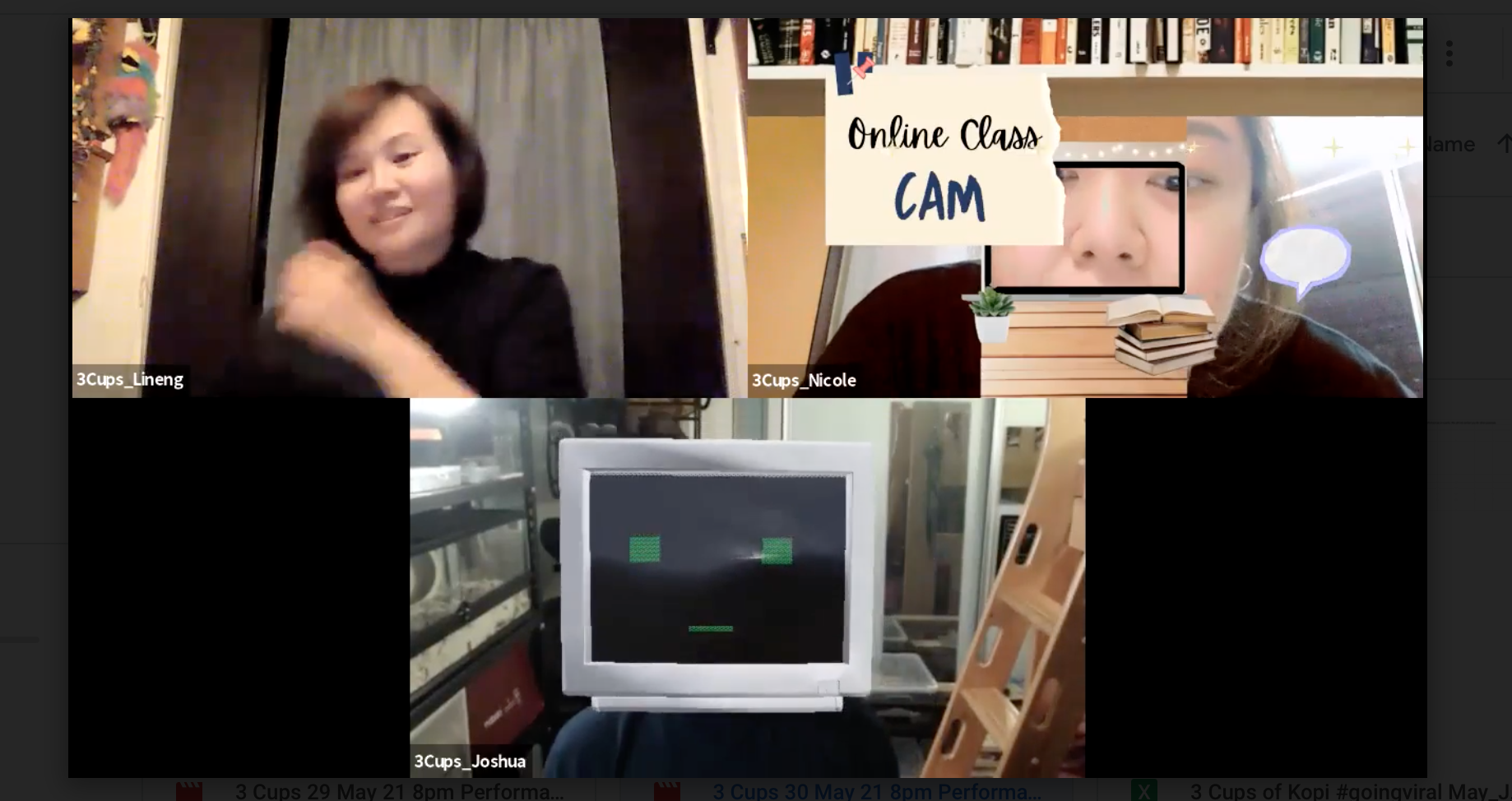
Especially in interactive performances that require participants to speak up and interact with the room, doing so in a physical space with people around you may be daunting for some. This pressure and fear is often assuaged when one is behind a computer screen.
Having attended a live Playback performance in the past, I can attest to the fact that speaking up in front of a crowd about my own personal story can be incredibly intimidating. However, when attending an online version of the performance recently, I found myself more willing to share.
The fact that the facilitator also requested other participants who were not sharing their story to turn off their view cameras also helped create a more intimate and personal experience between myself and the performers alone.
Some online Playback Theatre groups have even opted to incorporate technology as means of ensuring greater interactivity with handicapped or disabled groups. Take Karnataka-based Playback group YoursTrulyTheatre for instance, who are currently embarking on a performance project catered to the visually-handicapped community. With the transition to the online platform, they are now able to use applications such as Clubhouse, which allows for audio-only discussions to take place, creating conducive spaces for members of the community to participate and engage in the performance.
Ultimately, ensuring intimacy and engagement still boils down to ensuring that the basics are done right, and that facilitation methods are kept relevant and meaningful to all participants and audiences.
The Way Forward
Online and digital theatre as a whole is nothing new. Performance groups all across the world have long been incorporating the virtual space as a core part of their shows; hybrid or otherwise. The only thing that has really changed is the surge of this very genre and the necessary transition towards it.
While the pandemic has indeed been difficult on our local arts scene, it is perhaps through the efforts of groups like 3 Cups of Kopi and T:> Works, who will be hosting their online exhibition and performance Festival of Women N.O.W 2021, which begins on the 13th of July, that we observe how the pandemic has actually been a period of critical evolution and change for our local arts scene. You can find out more about T:> Works’ upcoming works and projects here.
While the transition towards the online form undeniably brings with it its own unique set of challenges, there is an optimism that these groups carry with them that truly exemplifies the undying spirit of our local theatre scene.
This is a period of tumultuous change and uncertainty. The specific requirements that go into instrumentalising the online platform as a medium for performance may indeed be challenging, but this is precisely also what demands our respect for the form—that this is far from being a temporary and inferior substitute to live theatre. Rather, it is a unique genre on its own that boasts distinct benefits, charms, and poise.
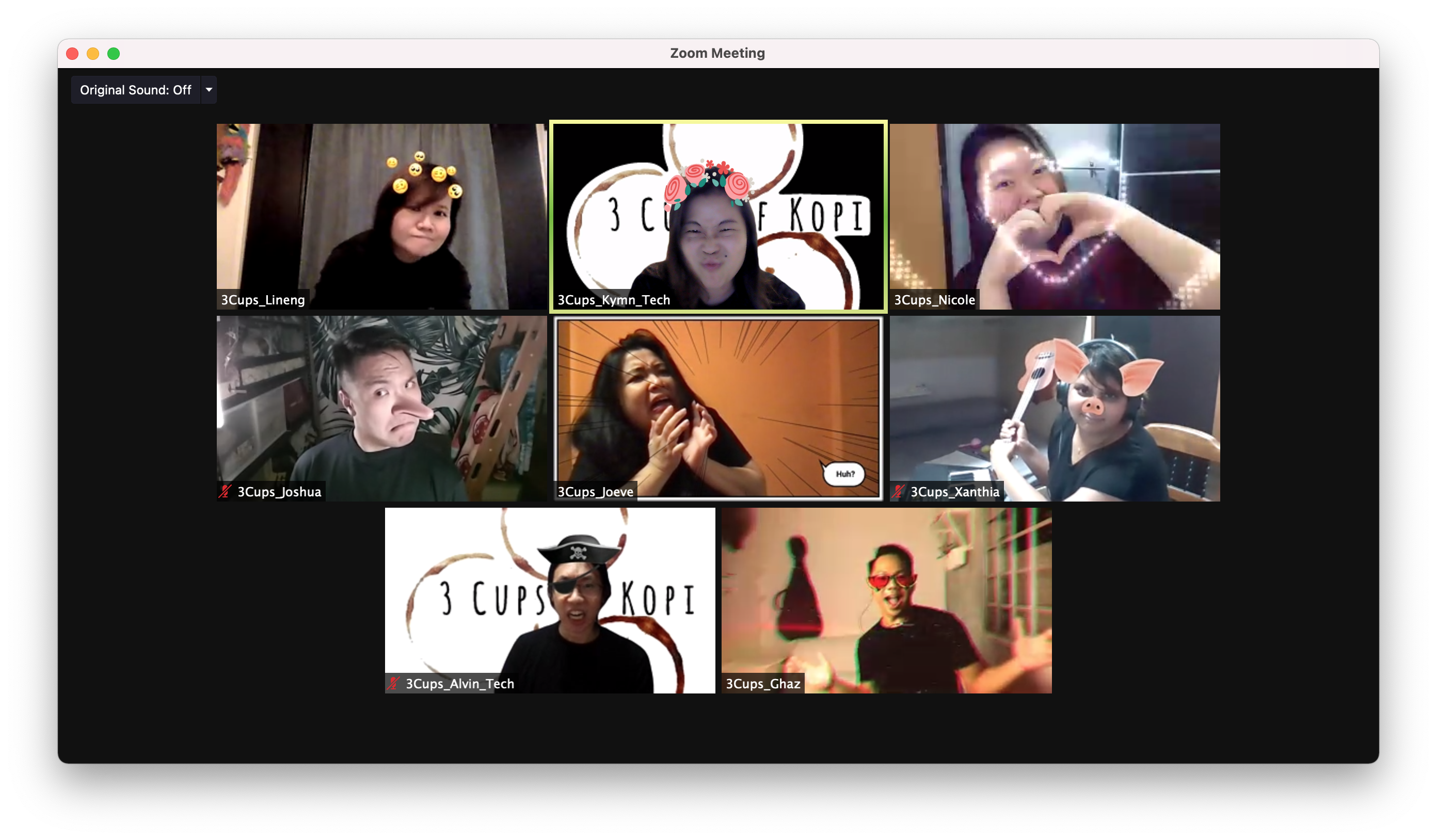
By embracing this major transition towards the digital, theatre groups all across Singapore ensure not only their survival during this trying period, but also guarantee their relevance as technology continues to evolve and alter our expectations and attitudes towards life in general.
Performances that incorporate advanced technology such as augmented reality and virtual reality have been on the rise over the past decade all across the world, and artists have been continuously finding new and innovative ways to express their art with changing mediums that grant increasingly diverse opportunities. We need to carry this optimism forward within our local communities in receiving the works of performance groups who take the bold leap forward.
Their undying spirit for evolution and change is the torch that lights the way forward, piercing through the miasma of the pandemic and bringing the future to us. We ought to be there with them as they do so.
Do you think going online is the future of our local theatre scene? Tell us what you think at community@ricemedia.co
